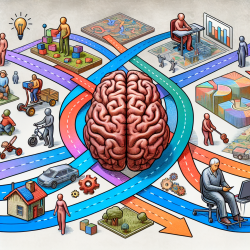Introduction
The research article titled The Impacts of Stigma Against Sexual Minority Men Within and Between Various Socioecological Levels: Breaking the Vicious Cycle in Zambia provides an insightful exploration into the pervasive impacts of stigma against sexual minority men (SMM) in Zambia. The study highlights the cyclical nature of stigma, affecting SMM at multiple socioecological levels, including intrapersonal, interpersonal, and institutional levels. For practitioners, understanding these dynamics is crucial in improving service delivery and outcomes for this marginalized group.
Key Findings and Their Implications
The research identifies three primary themes:
- Interpersonal Socially Perpetuated Stigma: This involves stigma from family, friends, and community members, leading to internalized negative self-perception among SMM.
- Psychosocial Well-Being and Risk-Taking Behaviors: Stigma contributes to mental health challenges and risky behaviors, such as substance use and unprotected sex, which further exacerbate health risks.
- Institutional Stigma: Healthcare settings often perpetuate stigma, discouraging SMM from seeking necessary medical care, thus hindering HIV prevention and treatment efforts.
These findings suggest that practitioners need to adopt a multi-level approach to address stigma, focusing on creating supportive environments at all levels of the socioecological model.
Strategies for Practitioners
Practitioners can implement several strategies to mitigate stigma and improve outcomes for SMM:
- Education and Training: Healthcare providers should receive training on cultural competency and sensitivity towards SMM to reduce biases and improve patient-provider interactions.
- Community Engagement: Engaging community leaders and members in awareness campaigns can help change societal norms and reduce stigma at the community level.
- Policy Advocacy: Advocating for policy changes that protect the rights of SMM and ensure confidentiality in healthcare settings can create a more supportive institutional environment.
- Mental Health Support: Providing accessible mental health services and support groups can help SMM cope with internalized stigma and improve their psychosocial well-being.
Encouraging Further Research
The study underscores the need for further research to explore the intersectionality of stigma and its impacts on SMM. Practitioners are encouraged to collaborate with researchers to gather more data and develop evidence-based interventions tailored to the unique needs of SMM in different contexts.
To read the original research paper, please follow this link: The Impacts of Stigma Against Sexual Minority Men Within and Between Various Socioecological Levels: Breaking the Vicious Cycle in Zambia.










